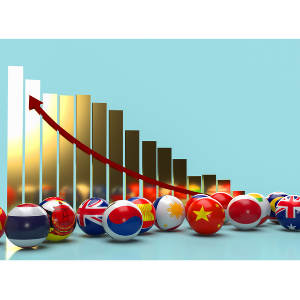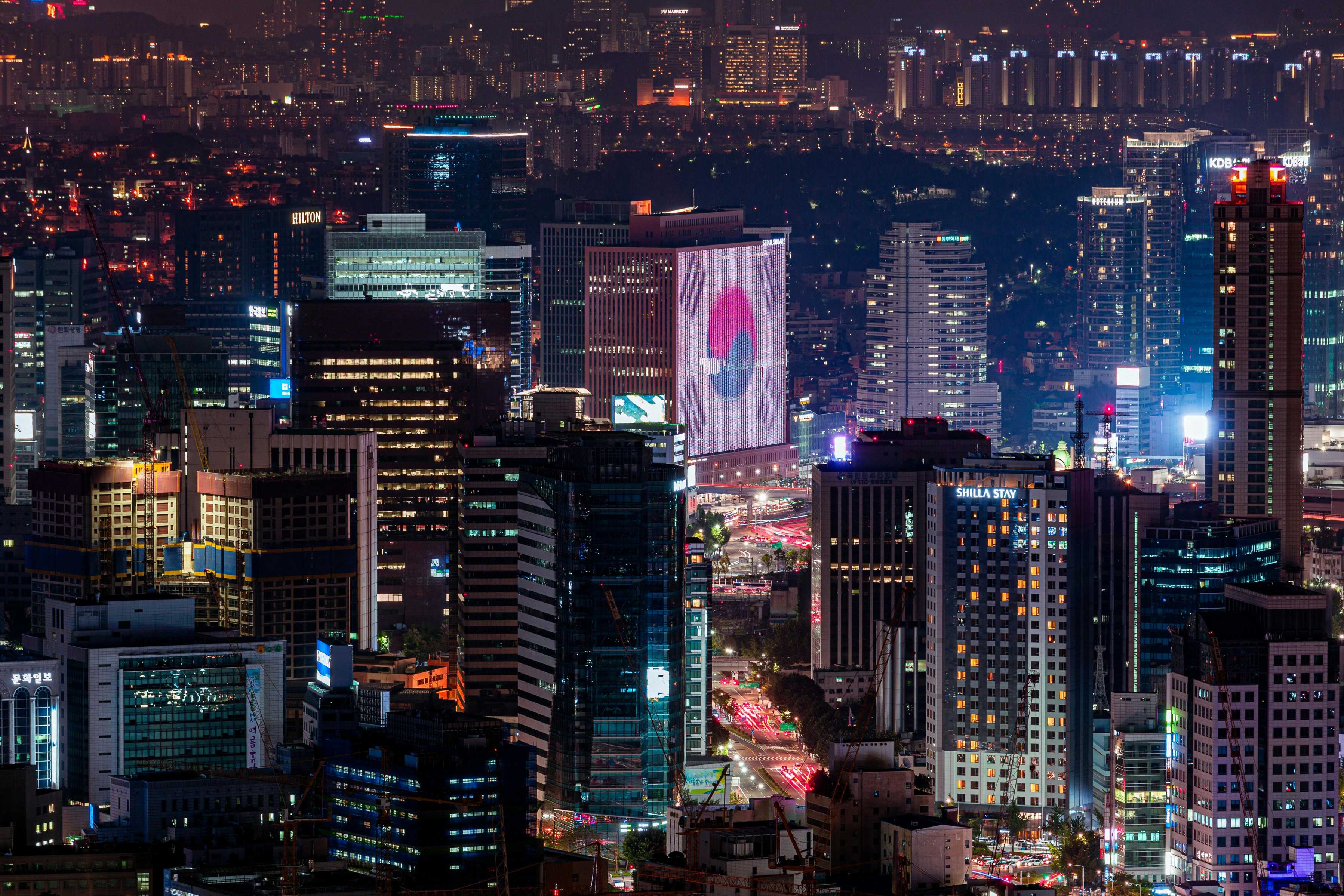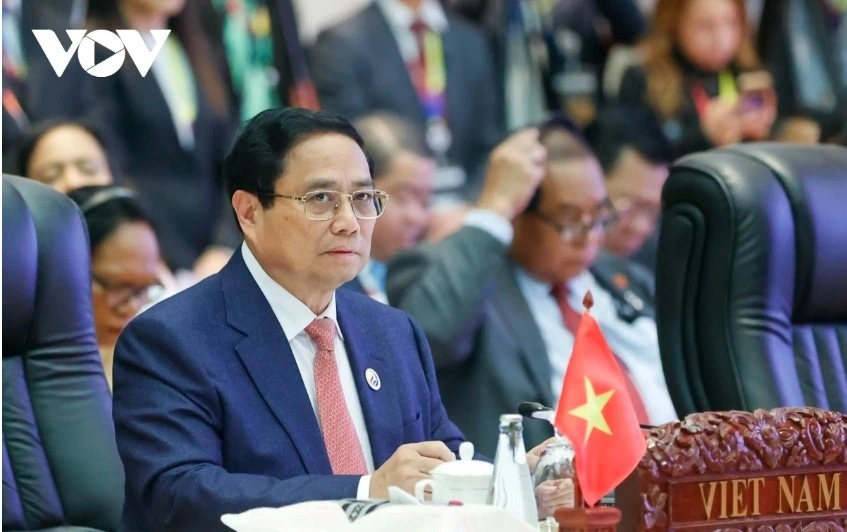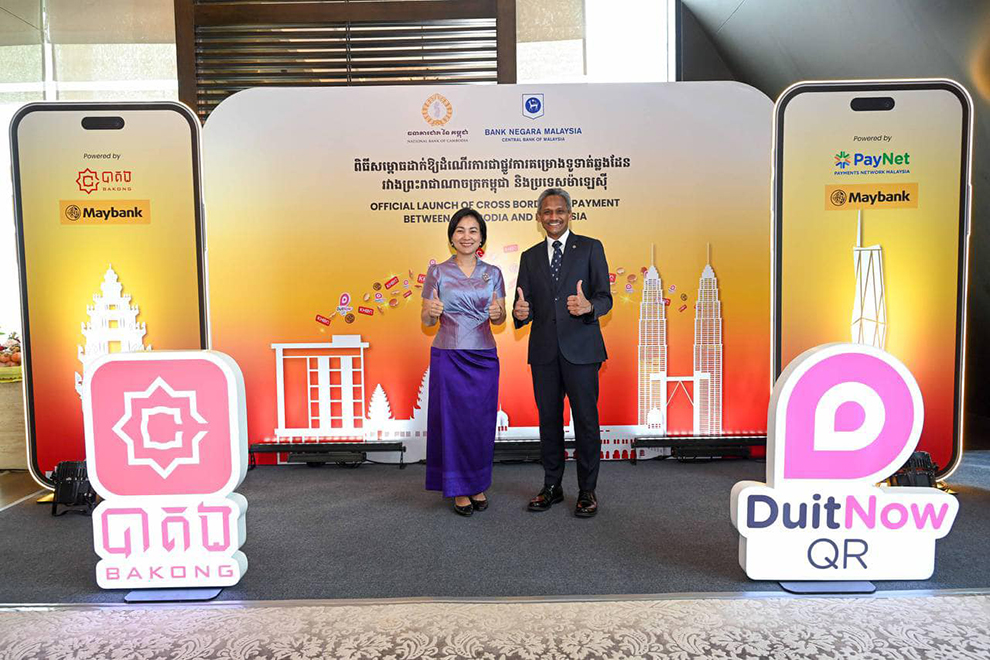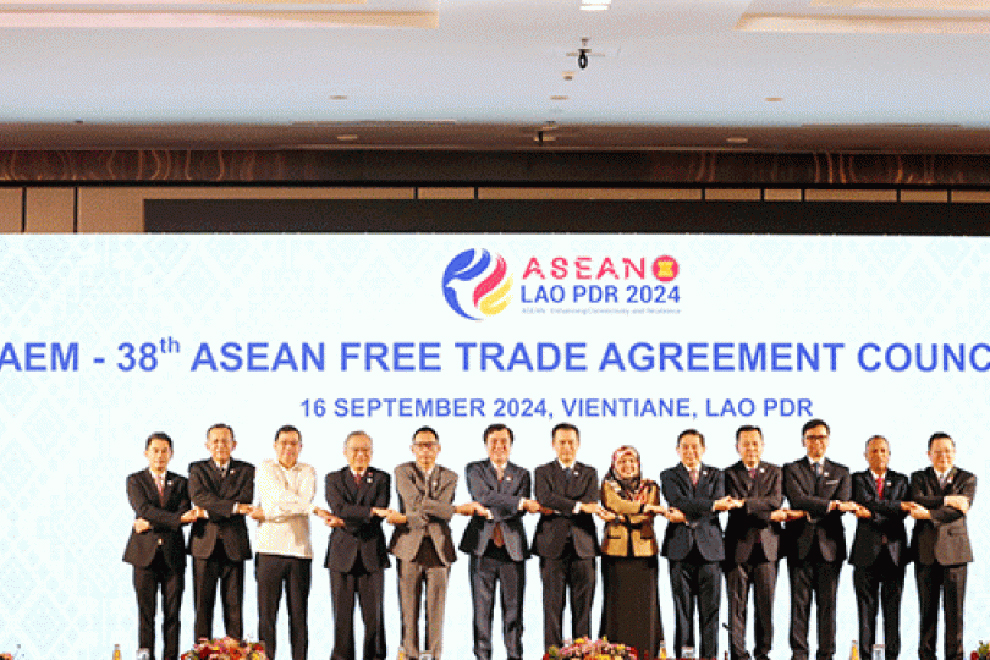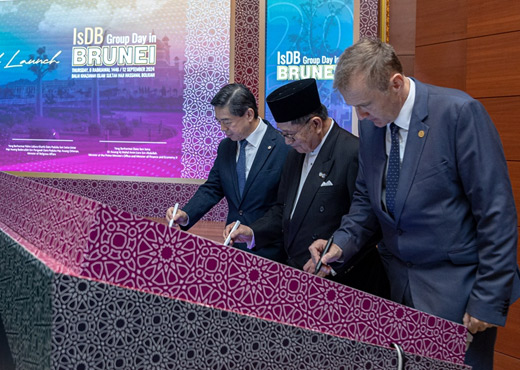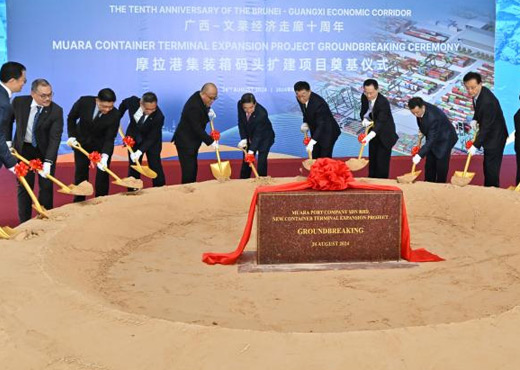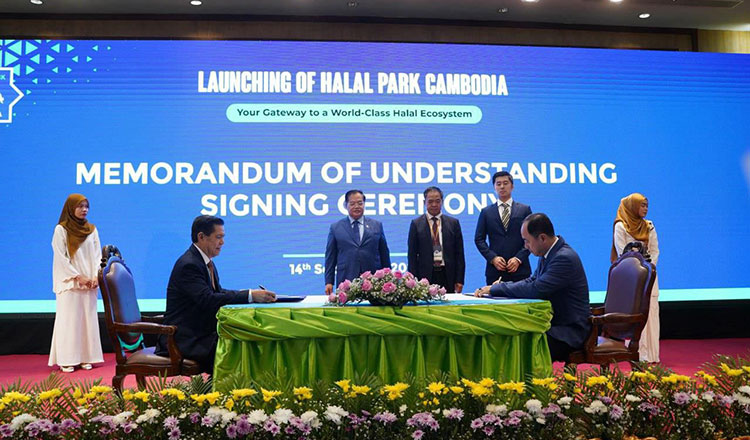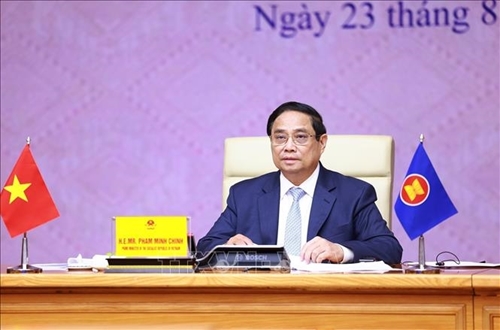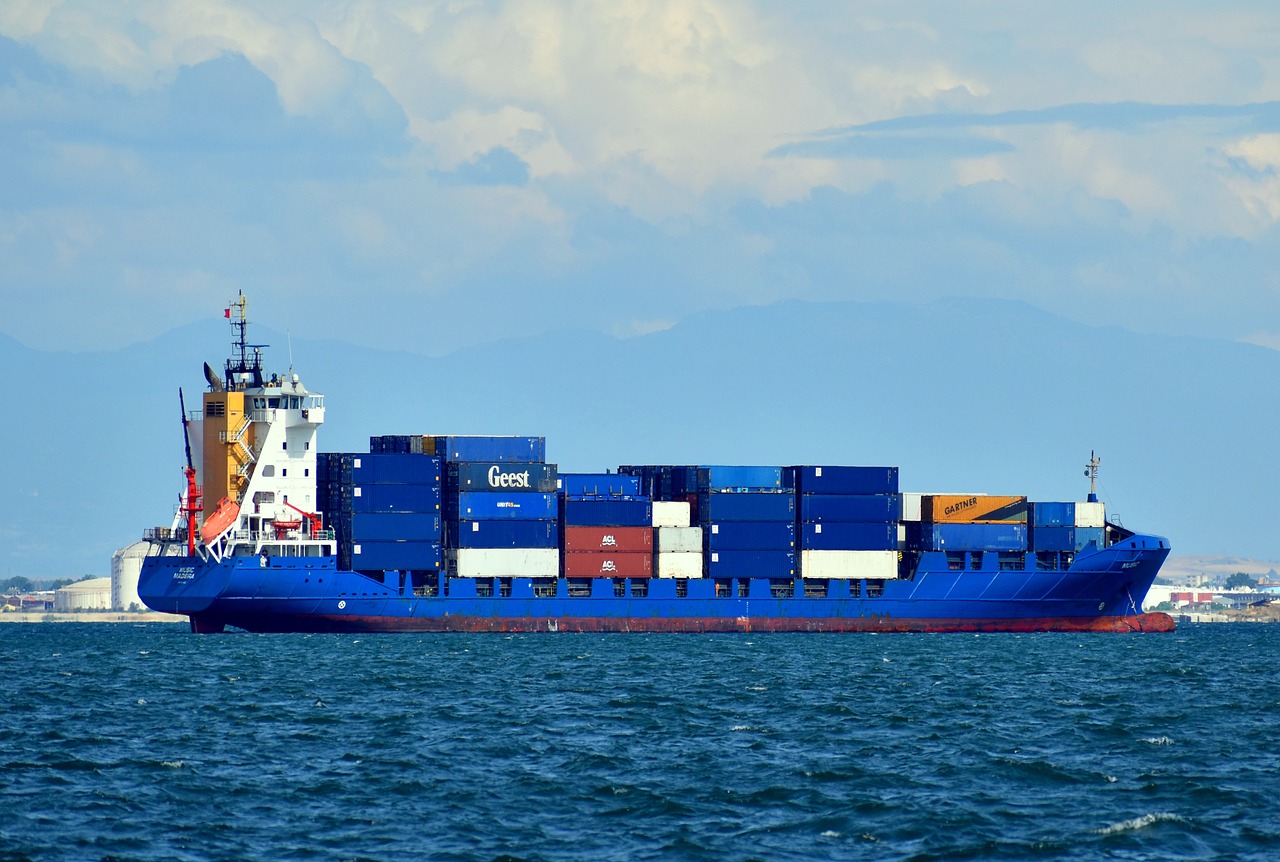October 08, 2024
Thanks to its lower costs, power availability and geopolitical neutrality, South-east Asia is emerging as an ideal region for tech operators to establish a data centre base, with the top five countries being Singapore, Malaysia, Thailand, Indonesia and Vietnam.
October 14, 2024
Cambodia and Malaysia have officially announced a cross-border payment project using QR Code technology. The initiative aims to provide Cambodian tourists and investors with more efficient and secure payment methods while in Malaysia.
The National Bank of Cambodia (NBC) and the Central Bank of Malaysia officially launched the cross-border QR Code payment system between the two countries on September 19.
The Phnom Penh launch ceremony was presided over by NBC governor Chea Serey and her Malaysian counterpart Abdul Rasheed Ghaffour.
According to the NBC, the project is being implemented in two phases.
As the first phase is now complete, Cambodian citizens can now make payments for goods and services in Malaysia by simply scanning the DuitNow QR Code displayed by merchants using the Bakong or Maybank mobile apps.
At the completion of the second phase, Malaysian citizens will be able to make payments for goods and services to Cambodian merchants while in Cambodia.
Serey explained that the cross-border payment initiative provides convenience, speed and security for Cambodians making cross-border transactions when travelling to Malaysia.
Cambodian citizens holding riel accounts can make payments using Khmer riel (KHR) as the base currency, while the settlement currency will be the Malaysian ringgit (MYR).
“This project will play a significant role in promoting trade and financial activities between the two countries, demonstrating a key step towards achieving the ASEAN Economic Community’s vision for interconnected retail payment systems that are fast, efficient and secure,” she added.
Rasheed Ghaffour emphasised that the connection of QR Code payment systems will enable faster and more efficient cross-border transactions between the two countries.
Cambodia also has similar arrangements with Thailand, Vietnam, Laos, China and South Korea.
For the authentic article, please read here
Source: The Phnom Penh Post
Trading among ASEAN countries has made significant strides since the ASEAN Free Trade Area was established in 1992 and is set to grow further in the coming years.
The surge in trade was underscored by Laos’ Minister of Industry and Commerce, Mr Malaythong Kommasith, when he chaired the 56th ASEAN Economic Minister Meeting (AEM) and 38th ASEAN Free Trade Area Council Meeting in Vientiane on Monday.
ASEAN has eliminated tariffs on almost all products, comprising 98.6 percent of all tariff items, and is continuing to refine the ASEAN Single Window Tax Notification System, in order to reduce trade costs and facilitate business in the region, Mr Malaythong said.
These measures have led to a marked growth in trade, with the value of inter-ASEAN trade in 2023 reaching US$759 billion, accounting for 21.5 percent of the total value of trade by ASEAN countries.
Mr Malaythong said he greatly appreciated the fact that this achievement was due to the strong leadership of ASEAN Economic Community Senior Officials and related sectors, which have implemented commitments under the ASEAN Trade Agreement and the ASEAN Programme to ensure the success of the ASEAN Economic Community Master Plan for 2025.
“In the past year, we have fulfilled work plans on the creation of the ASEAN Free Trade Zone and achieved many goals. In particular, we were able to resolve issues arising from the ASEAN Trade Agreement and the use of electronic trade documents through the ASEAN Single Window Tax Notification Service System,” he said.
He also highlighted the progress of negotiations to upgrade the ASEAN Trade Agreement which he hoped would be completed in 2025 as scheduled.
To broaden and deepen regional trade and further integrate trade, the meeting will consider and adopt a report from the ASEAN Economic Senior Officials Committee, a report from the negotiating committee on the upgrade of the ASEAN Trade Agreement, and the joint statement of the 38th AFTA Council Meeting, Mr Malaythong said.
He invited ministers attending the meeting to make constructive comments towards resolving various issues and to recommend clear directions for future progress by creating a favourable environment for the development of trade in the region.
For authentic article, please read here
Source: The Phnom Penh Post
Source: Borneo Bulletin
Read the full article here
The expanded capacity and facilities will position Muara Port to capitalise on regional growth opportunities, establishing Brunei as a regional shipping and transshipment hub, said Minister at the Prime Minister’s Office and Second Minister of Finance and Economy, YB Dato Seri Setia Dr. Awg Hj Md Amin Liew Abdullah, in his speech at the ceremony.
The Minister emphasised that the terminal expansion will not only increase overall throughput and accommodate larger vessels but will also contribute to growing the port’s value chain by offering additional logistics services.
This includes the construction of a 3.62-hectare Port Trade Zone (PTZ) within the new terminal, designed to streamline importing, production, and exporting for businesses using the port.
Source: Biz Brunei
Read the full article here
Cambodia’s first halal-focused special economic zone (SEZ) project was launched on Saturday following the signing of several memorandums of understanding (MoU) between the private-sector partners; including local business conglomerate, the WorldBridge Group of Companies.
The specialized industrial zone project ‘Halal Park Cambodia’, is set to be constructed on a 267-hectare plot of land in Kandal Province, located in close proximity to the ongoing Funan Techo Canal (FTC).
The FTC will link the industrial zone to key export ports via the canal once completed in the coming years.
The inauguration ceremony for the new SEZ, held in Phnom Penh, was attended by key company representatives and local dignitaries, as well as representatives from regional national halal institutions such as the Central Islamic Commission of Thailand (CICOT), the Malaysian Islamic Development Department (JAKIM), the Johor Malaysian Islamic Commission (Majlis Agama Islam Negeri Johor), the Singapore Islamic Council (MUIS), the Indonesia Halal Product Assurance Organizing Body (BPJPH) and the Vietnam Halal Certification Authority.
The specialized production zone envisioned by the founders of the park aims to provide for growth in domestic demand for halal-certified products, chiefly including halal food and cosmetics, as well as opening export opportunities in the multi-trillion dollar global halal products market.
According to the project’s founder and chairman, Mohd Amin Mohd Zain, who addressed attendees at the zone’s opening ceremony last weekend, the first priority for the venture will include the establishment of a multi-level satellite halal central kitchen and dedicated halal zones, within a surrounding cluster of small to medium-sized businesses (SMEs).
For full article, please read here
Reporter: James Whitehead
Source: Khmer Times
VOV.VN - Vietnamese Prime Minister Pham Minh Chinh, while addressing the Third ASEAN Women Leaders’ Summit in Vientiane on August 22, underscored the importance of encouraging women to get much involved in society to eliminate social prejudice against women and promote gender equality.
In his speech, Chinh highlighted women’s role in various spheres of society, suggesting that ASEAN countries increase awareness and thinking about women’s role, and introduce policies to encourage their equal participation in all fields, where women are not only empowered but also fully equipped with skills and knowledge to effectively contribute to the care and self-reliant economy of ASEAN.
It’s imperative to strengthen innovation, improve infrastructure, build a system of public health care and health services that are high quality, accessible and affordable, especially in poor, remote and isolated areas, he said while attending the hybrid summit from Hanoi.
He called on ASEAN countries to continue to improve institutions and policies, and integrate women-related affairs into socio-economic development plans, to promote gender equality while adapting to rapid population aging as well as climate change.
The Vietnamese PM stressed the need to increase investment in human resource training and vocational training for workers. He said ASEAN countries should increase the mobilization of resources from the whole society by attracting private investment and considering private investment as an important factor in efforts to develop the care economy.
He also proposed that ASEAN countries strengthen cooperation to protect the legitimate rights and interests of workers, and prevent abuse, exploitation, discrimination and illegal activities, as well as transnational crimes such as cross-border human trafficking.
Taking the floor in Vientiane, Vietnamese Deputy Minister of Labour, Invalids and Social Affairs Nguyen Thi Ha, briefed the summit about the actual state of the care economy in Vietnam, challenges of social prejudice against women’s role, limitations in care service providers, especially in rural and remote areas, and limitations in social security coverage for care workers, leading to gender and income inequality.
She also proposed recommendations to spur the development of the care economy and enhance the role of women in society.
Lao Prime Minister Sonexay Siphandone highly appreciated Vietnam’s proposals and sharing at the summit. By the way, he respectfully invited Prime Minister Pham Minh Chinh to visit Laos and attend the 44th and 45th ASEAN Summits and related meeting in Vientiane this October.
Source: Voice of Vietnam
Link: Here
Source of the image: Vietnamese Prime Minister Pham Minh Chinh addresses the Third ASEAN Women Leaders' Summit in Laos on August 23. (Photo: VGP)

